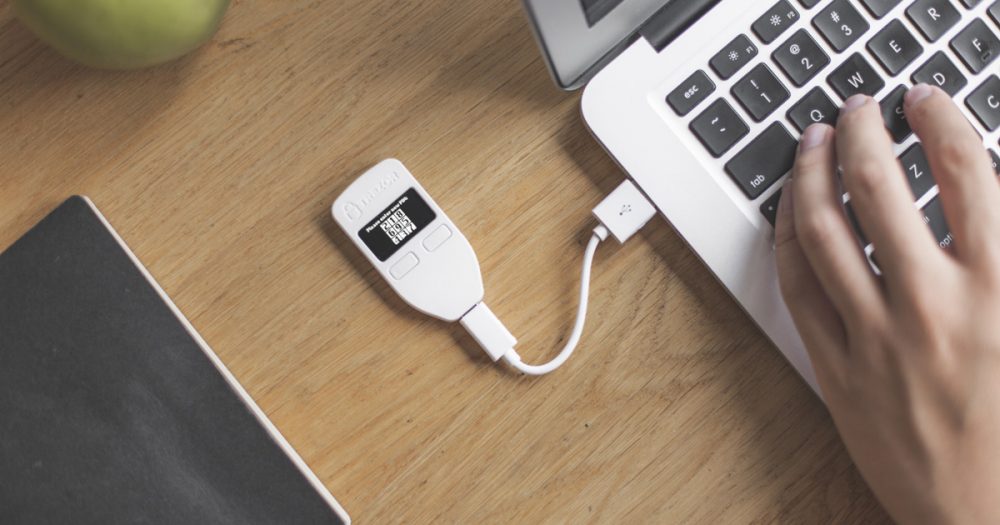Cold Wallets Explained: Why Serious Crypto Investors Don’t Trust Exchanges
If you’ve been in crypto for more than five minutes, you’ve probably heard it before:
“Not your keys, not your coins.”
And yet, millions still store their crypto on exchanges—where it’s vulnerable to hacks, bankruptcy, and frozen withdrawals.
In a world where digital security equals financial freedom, cold wallets have become the go-to solution for anyone serious about protecting their assets.
But what exactly is a cold wallet, and do you really need one?
Let’s take a closer look.
What Is a Cold Wallet?
A cold wallet is a form of offline crypto storage. Unlike hot wallets (which are always connected to the internet), cold wallets stay disconnected—making them nearly immune to online attacks.
There are two main types:
- Hardware wallets: Physical devices (similar to a USB stick) that store your private keys
- Paper wallets: Printed keys and QR codes you keep in a safe place
Because they’re offline, cold wallets are less convenient—but far more secure.
Why Cold Wallets Matter
To understand why cold wallets are important, you need to understand what’s at stake:
When you store crypto on an exchange:
- You don’t own the private keys
- Your funds depend on the exchange’s stability and security
- You’re exposed to hacks, insolvency (think FTX), and legal freezes
When you store crypto in a cold wallet:
- You own the keys
- Your crypto can’t be accessed without your device and your recovery phrase
- Even if stolen, funds remain locked without your PIN
In short: Cold wallets put control in your hands—not someone else’s.
Best Cold Wallets in 2025
Here are the most trusted options available this year:
1. Ledger Nano X
- Bluetooth enabled
- Supports 5,500+ assets
- Built with secure chip architecture (CC EAL5+)
Pros: Compact, widely trusted, integrates with Ledger Live
Cons: Software is proprietary and requires regular firmware updates
2. Trezor Model T
- Full-color touchscreen
- Open-source firmware
- Shamir backup support for added recovery options
Pros: Easy to use, transparent, ideal for beginners
Cons: Larger and more expensive than Ledger
3. Keystone Pro
- 100% air-gapped (uses QR codes, not USB or Bluetooth)
- Biometric fingerprint access
- Multi-sig and open-source support
Pros: Top-tier isolation and security
Cons: More complex setup and workflow
Are Paper Wallets Still a Thing?
Technically, yes—but not for most people.
While paper wallets provide complete offline protection, they’re fragile and outdated. One misstep—like losing or damaging the paper—and your assets are gone.
Verdict: Use only if you know what you’re doing and have serious backup plans (think fireproof, waterproof safes).
How to Set Up a Cold Wallet (Properly)
- Buy directly from the manufacturer (avoid secondhand devices)
- Initialize it offline, away from cameras and phones
- Write down the recovery phrase—never store it digitally
- Set up a PIN or passphrase for added protection
- Test with a small transfer first
- Always verify addresses on the device screen
- Store your wallet and seed phrase separately, both in secure locations
The Most Common Mistakes (and How to Avoid Them)
- Reusing recovery phrases across wallets
- Saving the seed phrase in cloud storage or screenshots
- Forgetting backups entirely
There’s no “reset your password” in crypto. One mistake can mean permanent loss.
Should You Use a Cold Wallet?
If you hold more than €500 in crypto and don’t plan to move it often, the answer is almost always yes.
For day-to-day use or frequent trading, hot wallets are fine. But never store your entire portfolio on one.
General rule:
- Hot wallet = daily spending
- Cold wallet = long-term savings
Cold, but in Control
Cold wallets aren’t about fear—they’re about financial sovereignty.
In the world of decentralized finance, self-custody isn’t optional anymore. If you don’t hold your own keys, someone else does. And that someone can lose them, freeze them, or take them.
Cold wallets don’t just protect your coins. They protect your future.



